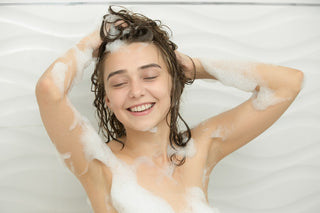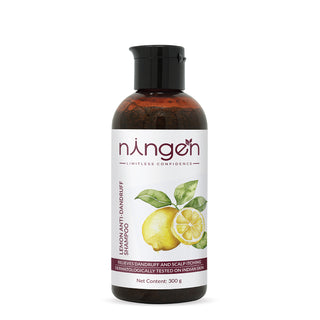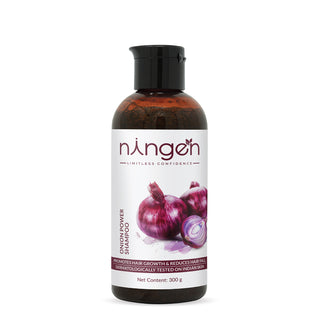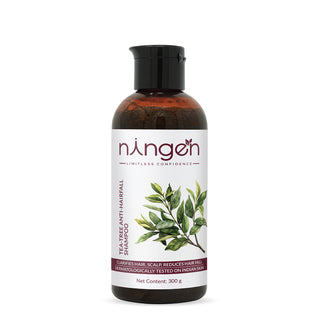When it comes to hair care, we often focus on the strands themselves and forget about the scalp. But did you know that exfoliating your scalp can promote healthy hair growth and improve overall scalp health?
Exfoliating is a process of removing dead skin cells, dirt, and buildup from the scalp. The scalp, just like the rest of our skin, needs exfoliation to stay healthy and clean. However, many people don't know how to exfoliate their scalp or are afraid to do so.
In this blog, we will walk you through the process of exfoliating your scalp and explain why it's important for your hair health. So, let's get started on the journey to a healthier head of hair!
Benefits of exfoliating your scalp
Exfoliating your scalp is an important step in maintaining healthy hair and promoting hair growth. By choosing the right exfoliant, using gentle pressure, and following up with a soothing hair mask, you can effectively exfoliate your scalp and keep your hair looking and feeling its best.
-
Prevents product build up
Exfoliating your scalp helps to remove dead skin cells, excess oil, and product build-up that can accumulate on the scalp. This build-up can clog hair follicles, leading to hair thinning and breakage. By exfoliating regularly, you promote healthy hair growth by unclogging the hair follicles and allowing your scalp to breathe. This also helps to improve blood circulation to the scalp, delivering essential nutrients and oxygen to the hair follicles. As a result, your hair looks and feels healthier, and you can avoid the negative effects of product build-up.
-
Prevents Dandruff
Exfoliating your scalp helps with dandruff by removing dead skin cells and excess oil that can accumulate on your scalp. When dead skin cells build up on your scalp, they can mix with oil and form flakes, which are commonly known as dandruff. Exfoliating the scalp with a gentle scrub or brush helps to remove these dead skin cells and excess oil, which can reduce the occurrence of dandruff. It also promotes healthy hair growth by stimulating blood flow to the scalp.
-
Controls excess oil
It helps to remove dead skin cells, excess oil, and product buildup that can clog hair follicles and lead to an oily scalp. By removing these impurities, exfoliating helps to unclog hair follicles and promote healthier hair growth. It also helps to remove the excess oil that can accumulate on the scalp, which can lead to an oily appearance and contribute to the development of dandruff. By keeping the scalp clean and healthy, exfoliating can help to control oil production and maintain a balanced scalp environment.
-
Adds shine to your hair
It removes dead skin cells, excess oils, and product buildup that can accumulate on your scalp and clog hair follicles. When hair follicles are clogged, it can lead to dull, lackluster hair. By removing these impurities, you allow your hair follicles to breathe and promote healthy hair growth. This can lead to shinier, healthier-looking hair. Additionally, exfoliating can increase blood flow to the scalp, which can also promote hair growth and a healthy scalp.
-
Regulate sebum production
It removes excess oil, and impurities that can clog hair follicles and contribute to an overproduction of sebum. When the hair follicles are clogged, the sebaceous glands can become overactive, which leads to an excess of sebum production. By exfoliating the scalp, you can help to unclog these hair follicles, allowing the sebum to flow freely and reducing the likelihood of overproduction. Additionally, exfoliating can stimulate blood flow to the scalp, which can also help to regulate sebum production. Overall, exfoliating the scalp can help to promote a healthy balance of sebum production, leading to healthier hair and a cleaner scalp
-
Boost effectiveness of your hair care products
This allows the active ingredients in the products to work more effectively, resulting in healthier and more vibrant hair. Additionally, exfoliating can help to increase blood flow to the scalp, which can promote hair growth and improve overall scalp health. By regularly exfoliating your scalp, you can enhance the effectiveness of your hair care routine and achieve better results.
-
Boost hair growth
This allows your hair follicles to breathe and absorb nutrients more effectively, which can promote healthier hair growth. Additionally, exfoliating can stimulate blood flow to the scalp, which can also improve hair growth. By regularly exfoliating your scalp, you can create a healthy environment for your hair to grow and thrive.
How to exfoliate your scalp
Use an exfoliating shampoo
Exfoliating shampoo contains small particles or ingredients that help to gently remove dead skin cells and buildup from the scalp. By massaging the exfoliating shampoo into the scalp, these particles work to loosen and remove dirt, oil, and dead skin cells that can clog hair follicles and lead to an unhealthy scalp. This process can help to improve circulation and promote healthy hair growth, as well as reduce dandruff and other scalp issues. Try Ningen Lemon shampoo.
Exfoliating hair brush
An exfoliating brush helps to remove dead skin cells, dirt, and excess oil from the scalp, which can clog hair follicles and lead to hair loss. The bristles of the brush work to gently massage and scrub the scalp, increasing blood flow and promoting healthy hair growth. By exfoliating regularly, you can also help to prevent dandruff, itchiness, and other scalp conditions.
Scalp scrub
Scalp scrub contains small particles or granules that work to physically exfoliate your scalp. When massaged onto the scalp, these granules help to loosen and remove dead skin cells, excess oil, and product buildup that can clog hair follicles and lead to scalp irritation or dandruff. The scrubbing action also helps to increase blood flow to the scalp, which can promote healthier hair growth. Besides, many scalp scrubs contain ingredients like tea tree oil or salicylic acid that have anti-inflammatory and antimicrobial properties, helping to soothe and protect the scalp from further irritation or infection.
Use Gentle Pressure
Scrubbing too hard or using too much pressure with a brush or exfoliant can damage your scalp or hair follicles. Use gentle pressure and massage your scalp in circular motions to avoid irritation.
Rinse Thoroughly
After exfoliating your scalp, rinse your hair and scalp thoroughly with warm water. Make sure to remove all the exfoliant from your scalp to avoid any irritation or buildup.
Follow with a Soothing Hair Mask
After exfoliating your scalp, follow up with a soothing hair mask to nourish your hair and scalp. Choose a mask that contains ingredients like aloe vera, tea tree oil, or chamomile to soothe any irritation and promote a healthy scalp.
To wrap up, exfoliating your scalp can help remove dead skin cells and buildup, promote hair growth, and improve overall scalp health. To exfoliate the scalp, start by wetting your hair and applying an exfoliating scrub or treatment directly to the scalp. Use your fingertips to massage the scalp in circular motions, being gentle to avoid causing any damage or irritation. Rinse thoroughly and follow up with a conditioner or hair mask to nourish and hydrate the scalp and hair. It is recommended to exfoliate the scalp 1-2 times a week for best results.










